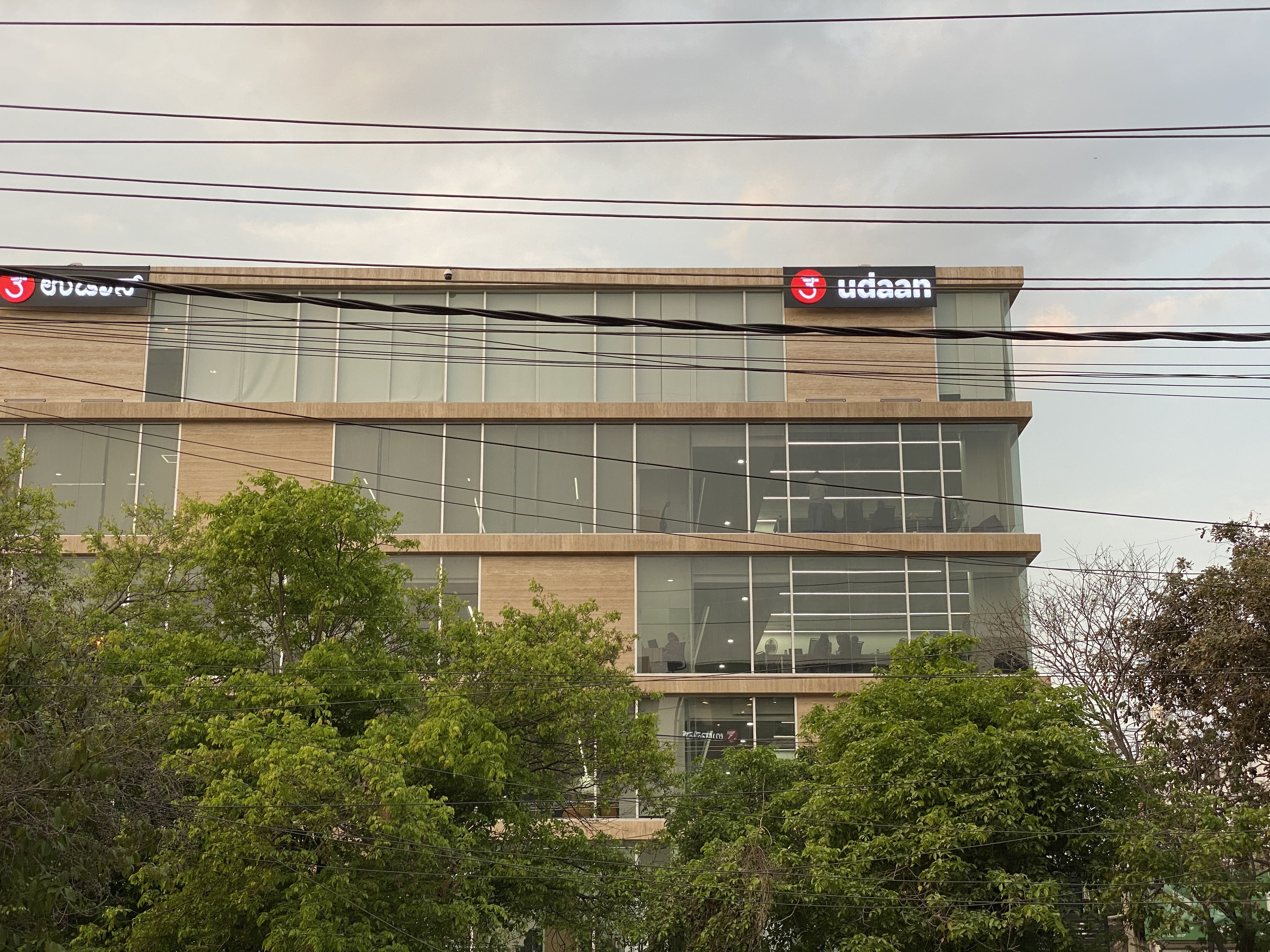During a recent visit, Microsoft chief executive Satya Nadella reiterated his company’s commitment to India and revealed a new fund to help SaaS startups in the country.
And then Nadella and Anant Maheshwari, president of Microsoft India, discussed the success story of B2B platform Udaan in three separate onstage public appearances.
Headquartered in Bangalore, Udaan is a business-to-business e-commerce marketplace founded by former Flipkart executives Amod Malviya, Vaibhav Gupta and Sujeet Kumar. The startup used Microsoft’s free Azure credits to scale in its early days; as in some other markets, Microsoft, Amazon and Google offer free cloud credits in bulk to early, promising Indian startups in a bid to onboard them and see if their solutions could be relevant to other clients down the road.
More often than not, these bets don’t work, but sometimes they pay off. Udaan, valued at about $2.7 billion after raising nearly $900 million from investors like Lightspeed Venture Partners, Tencent Holdings, GGV Capital and Hillhouse Capital, has become one of Microsoft India’s biggest clients in the last three years.
Udaan was founded in 2016 at the tail end of India’s e-commerce frenzy, when scores of startups that had attempted to build business-to-consumer online shopping platforms were conceding defeat.
At the time, very few players — like Power2SME and Moglix (industrial products) and Bizongo (packaging for businesses) — were looking at the business-to-business market in India.
Udaan is valued at about $2.7B after raising nearly $900M from investors like Lightspeed Venture Partners, Tencent Holdings, GGV Capital and Hillhouse Capital and has become one of Microsoft India’s biggest clients.
But despite venturing into a road less traveled, Udaan had ambitious dreams. The startup was building its own logistics network, a herculean task that even Flipkart and Amazon avoided to a certain measure for years, yet it was reaching an audience that had never sold online.
How it grew so fast illustrates the stark difference between the B2B e-commerce market in India and B2C e-commerce businesses such as Flipkart and Amazon India, both of which claim to service more than 95% of the postal codes in one of their most important overseas markets.
A simpler way to understand Udaan’s business is to acknowledge the challenges it confronts: As with most individuals, the purchasing power of the vast majority of small businesses, merchants and retailers in India is very low.
Most inventories that move through the supply chain and into customers’ homes do not carry any recognizable brand name. Once you step beyond urban centers in India, which account for less than 25% of the country’s addressable market, traditional ways of doing trade still prevail.

One of the four offices of Udaan in Bangalore (Photo: Manish Singh / TechCrunch)
Tens of thousands of neighborhood stores, locally known as kiranas, dot cities, towns and villages in India. They are often family-run businesses that have survived seasons of brick-and-mortar chains’ expansion, along with the relentless efforts of online giants.
Their business also makes great economical sense in India — most kiranas are profitable. (As an aside, now both Flipkart and Amazon are working with neighborhood stores in India to benefit from their immense network.)
When you move a step away from these mom-and-pop stores, things make even more economical sense. Most distribution and wholesale businesses in India typically observe 40%-50% return on their capital, some of the world’s best. (Research firm Redseer estimates that about 70% of the supply chain for India’s business-to-business market is unorganized.)
It all sounds great, but there is a reason why so few startups in India have attempted to address this market. At the core of this challenge is the grip these aforementioned distributors and wholesalers have on the kiranas; the entire system of trading is run on informal credit history. Most small merchants don’t have formal credit history, which is where the most pressing problem begins to emerge.
These distributors and wholesalers are solving the credit problem, but they charge a lot. Most merchants in India don’t have any savings, so they need to be paid for their previous consignment first before they could plan their next order. Banks are always there for them, but securing a loan requires a lot of documentation, which isn’t feasible for merchants looking to cash in on events such as the festival of Diwali, which sees Indians spend heavily, Udaan co-founder Sujeet Kumar told TechCrunch.
Udaan has tackled this challenge on two fronts: building its own logistics network that enables merchants to ship as many items as they would like, waiving minimum order amounts, which is required by most other Indian logistics networks. This has eased the constraint on sellers, who need not wait for a bulk of orders before shipping. Over the years, Udaan’s logistics network has reached 600 cities in India (and an additional 300 with third-party logistics providers).
Secondly, the company maintains Udaan Capital, its own lending arm. But winning the trust of buyers and sellers wasn’t easy. “You see, even as sellers struggled to grow their businesses, there is still a very strong bond between them and the distributors,” said Kumar. “Also, they have seen many startups come to them before. They are wary of new players. It’s their bread and butter we are talking about.”
Despite their caution, “many of these sellers though started to give us a try. They placed small orders, but slowly as they saw the benefits, became more reliant on us,” he said.
After reviewing a buyer or seller’s transactions on its platform, Udaan Capital quickly approves loans at minimal rates. “This has allowed merchants to grow their businesses as they have capital in hand at a very fast turnaround period,” Kumar said. Today, the company handles more than six million orders a month and has amassed more than three million active retailers in three categories: food, non-food (toys, hardware, electronic items, apparel, etc.) and pharmaceuticals.
“The food network is the most intensive to build, as you need to have warehouses in each city. These items such as vegetables and other perishables that you can only service within a city,” explained Kumar.
The food category today operates in about 30 cities and the startup said it is working to expand to about 50 cities by the end of 2020. But since we spoke last month, the coronavirus outbreak has disrupted the supply chain and other core businesses in India, which the company is cautiously monitoring.
New Delhi announced on Tuesday a national 21-day total lockdown for its 1.3 billion people. Only a handful of businesses such as food delivery and other “essential” e-commerce delivery have been exempted from the lockdown.
It’s too early to gauge the impact the coronavirus outbreak will have on Udaan and on the business-to-business market at large, which was worth $714 billion in India in 2019. But the startup has built a solid foundation.
